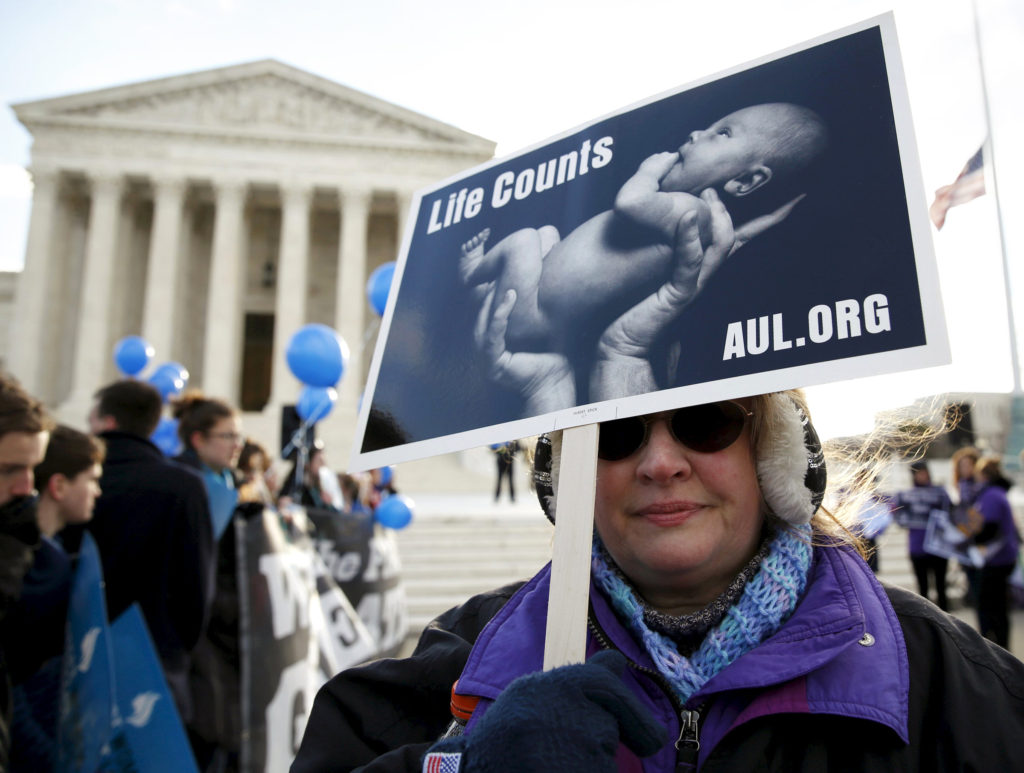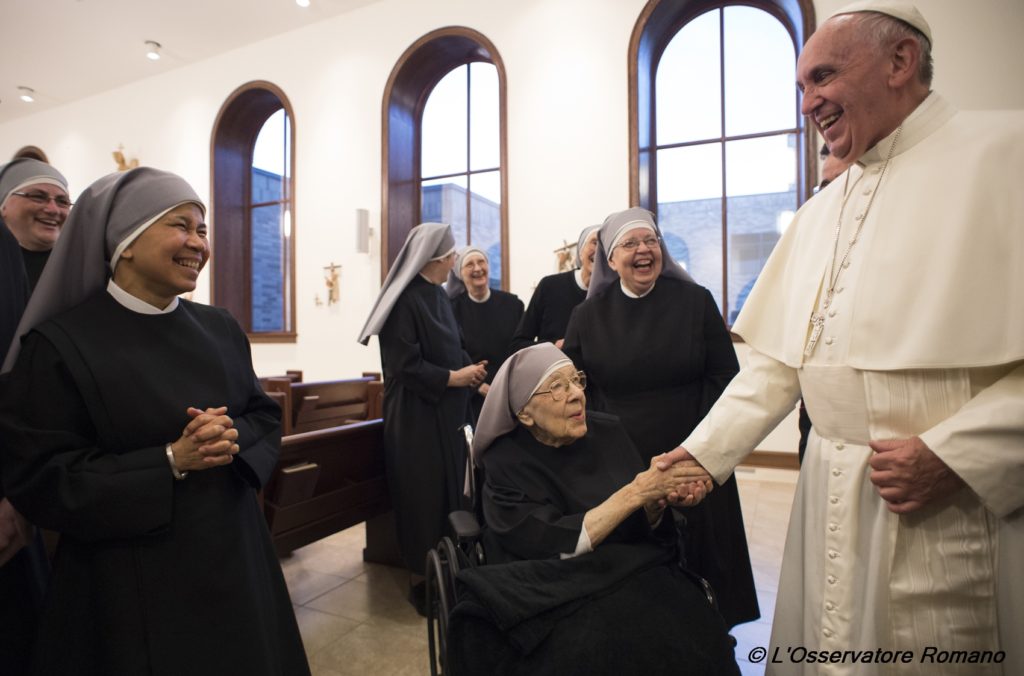

WASHINGTON (CNS) — Meg McDonnell, executive director of Women Speak for Themselves, was on the phone, testing out a chant for a March 23 Supreme Court rally.
“Everywhere we go, people want to know, who we are, who we are. …”
It sounded snappy, like it had potential. Who composed it?
“Oh, one of our staff members is a former cheerleader. She came up with it,” said McDonnell, whose organization was founded a few years ago to defend religious freedom and promote “a real women’s agenda” of pro-life issues.
Planning a rally outside the court during oral arguments in the Zubik v. Burwell contraceptive mandate case, best known as the Little Sisters of the Poor case, requires imagination. It’s the first such rally McDonnell has planned, and only the second she’s been involved with since one at the White House two years ago during the Hobby Lobby case.
She told Catholic News Service that she doesn’t expect a reprise of the noisily competing March 2 rallies in front of the court during the arguments on a challenge to a Texas abortion law. That day, some 3,000 supporters of Planned Parenthood surrounded 200 pro-lifers and attempted to drown out their speeches. To date, no rally in support of the Health and Human Services contraceptive mandate has been announced by any organization.
“You need to have a happy balance,” McDonnell explained. “The point of the demonstration is to show the public and the media what the case is about.”
She hopes to have “a few hundred” in attendance. Plus a single message: “Let Them Serve.” No partisan tone, no politicians. And to ensure a pleasing visual element, at least 100 women religious from different orders.
Catholic speakers will include Mother Mary Assumpta Long of the Dominican Sisters of Mary in Ann Arbor, Michigan, and Mother Regina Marie Gorman of the Carmelite Sisters of Los Angeles. A delegation of Little Sisters will be there, but a volunteer from one of their homes will speak in their stead.
There won’t be singing, but some of the Little Sisters will be handing out cookies. “We’re really looking forward to a joyful morning,” McDonnell said.
The 15 scheduled speakers are all women, since the case involves the contraceptive mandate of the Affordable Care Act, which requires most employers, including religious employers, to cover contraceptives, sterilization and abortifacients through health insurance. For the Denver-based Little Sisters, this means about 2,700 employees in the 27 nursing homes for the elderly poor they operate nationwide.
HHS has offered what it calls an “accommodation” or “work-around” that allows objecting employers to acknowledging their opposition to contraceptive coverage by notifying HHS in a letter.
This triggers an arrangement for a third party to provide the coverage. But the Little Sisters religious order objects to that as well, calling it a burden on the free exercise of religion. So do the six other appellants combining 36 religious nonprofit petitioners, including East Texas Baptist University, Southern Nazarene University and Geneva College, a Presbyterian institution, and the Archdiocese of Washington, the dioceses of Pittsburgh and Erie, Pennsylvania and Priests for Life.
All cite the Religious Freedom Restoration Act of 1993 in their defense.
Sr. Constance Veit, communications director of the Little Sisters, wrote recently in the Catholic Review, the online publication of the Archdiocese of Baltimore, that the government’s work-around enables “formal cooperation with wrongdoing.” She responded to written questions submitted by CNS.

What is the biggest misconception the public has? “In thinking that this mandate provides universal coverage, and that we are somehow stopping people from getting these services. But the mandate doesn’t cover one-third of Americans,” she said.
“Big companies like Exxon and Visa are exempt, and the government has exempted its own insurance plans for military families and the disabled,” she continued. “Those employers are allowed to exclude these services for reasons of cost and convenience — our religious beliefs should get at least as much respect as the government’s desire to save a little money or big business.”
Should the court, following the death of Justice Antonin Scalia, come to a 4-4 deadlock that will uphold decisions of the lower courts and not set the case aside for further review, the order would face fines, but its employee health-care coverage won’t stop. “In the end, all of this is in God’s hands. For 175 years he has protected our ministry to the elderly poor through all kinds of strife and difficulties. We are confident that he will not abandon us now.”
The pressure for the coverage, Sr. Constance insists, comes solely from the government, and not their employees. “Many of them tell us that they chose us specifically because they wanted to work in a religious atmosphere like ours. And they have never pressured us to violate our religion by providing services that go against our Catholic faith.”
The undisputed highlight of the case so far was the unscheduled Sept. 23 visit of Pope Francis to the Little Sisters’ residence in Washington during his apostolic visit.
“He spoke with each sister and novice, and encouraged us in our ministry of caring for the elderly. He told us he appreciates our work, particularly for people whom society too often overlooks or forgets. It was a wonderful visit and the Vatican confirmed that part of the purpose was to show support for our efforts to seek protection from this mandate.”
— By Kurt Jensen, Catholic News Service.





